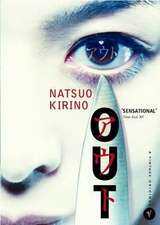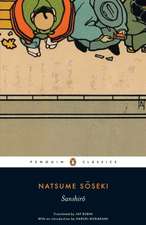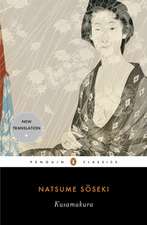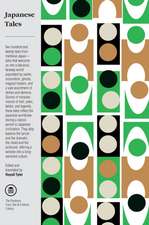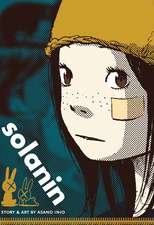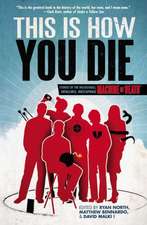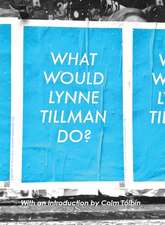Kokoro: (Translated by Edward McClellan)
Autor Natsume Soseki Traducere de Edward McClellanen Limba Engleză Paperback – 23 sep 2018
| Toate formatele și edițiile | Preț | Express |
|---|---|---|
| Paperback (6) | 52.61 lei 3-5 săpt. | |
| CreateSpace Independent Publishing – | 52.61 lei 3-5 săpt. | |
| Pushkin Press – 29 aug 2024 | 69.70 lei 3-5 săpt. | +9.39 lei 6-12 zile |
| Penguin Books – 5 mai 2010 | 81.64 lei 3-5 săpt. | +8.41 lei 6-12 zile |
| SKYHORSE PUBLISHING – iul 1996 | 103.26 lei 3-5 săpt. | |
| Digireads.com – 31 dec 2012 | 61.17 lei 6-8 săpt. | |
| Neeland Media – 23 sep 2018 | 67.63 lei 6-8 săpt. |
Preț: 67.63 lei
Nou
Puncte Express: 101
Preț estimativ în valută:
12.94€ • 13.48$ • 10.72£
12.94€ • 13.48$ • 10.72£
Carte tipărită la comandă
Livrare economică 03-17 aprilie
Preluare comenzi: 021 569.72.76
Specificații
ISBN-13: 9781420959536
ISBN-10: 1420959530
Pagini: 156
Dimensiuni: 142 x 216 x 15 mm
Greutate: 0.2 kg
Editura: Neeland Media
ISBN-10: 1420959530
Pagini: 156
Dimensiuni: 142 x 216 x 15 mm
Greutate: 0.2 kg
Editura: Neeland Media
Notă biografică
Natsume
Soseki
(1867-1916),
one
of
Japan's
most
influential
modern
writers,
is
widely
considered
the
foremost
novelist
of
the
Meiji
era
(1868-1914).
Born
Natsume
Kinnosuke
in
Tokyo,
he
graduated
from
Tokyo
University
in
1893
and
then
taught
high
school
English.
He
went
to
England
on
a
Japanese
government
scholarship,
and
when
he
returned
to
Japan
he
lectured
on
English
literature
at
Tokyo
University
and
began
his
writing
career
with
the
novelBotchan.
Numerous
nervous
disorders
forced
him
to
give
up
teaching
in
1908,
and
he
became
a
full-time
writer.
He
wrote
fourteen
novels,
includingI
Am
A
CatandKusamakura,
as
well
as
haiku,
poems
in
the
Chinese
style,
academic
papers
on
literary
theory,
essays,
autobiographical
sketches,
and
fairy
tales.
His
work
enjoyed
wide
popularity
in
his
lifetime
and
secured
him
a
permanent
place
in
Japanese
literature.
Meredith McKinney holds a PhD in medieval Japanese literature from the University in Canberra, where she teaches in the Japan Centre. She lived and taught in Japan for twenty years and now lives near Braidwood, New South Wales. Her other translations includeRavine and Other Stories, The Tale of Saigyo,and for Penguin Classics,The Pillow Bookof Sei Shonagon andKusamakura.
Meredith McKinney holds a PhD in medieval Japanese literature from the University in Canberra, where she teaches in the Japan Centre. She lived and taught in Japan for twenty years and now lives near Braidwood, New South Wales. Her other translations includeRavine and Other Stories, The Tale of Saigyo,and for Penguin Classics,The Pillow Bookof Sei Shonagon andKusamakura.
Descriere
Descriere de la o altă ediție sau format:
"The subject of 'Kokoro,' which can be translated as 'the heart of things' or as 'feeling,' is the delicate matter of the contrast between the meanings the various parties of a relationship attach to it. In the course of this exploration, Soseki brilliantly describes different levels of friendship, family relationships, and the devices by which men attempt to escape from their fundamental loneliness. The novel sustains throughout its length something approaching poetry, and it is rich in understanding and insight. The translation, by Edwin McClellan, is extremely good."
—Anthony West, The New Yorker

